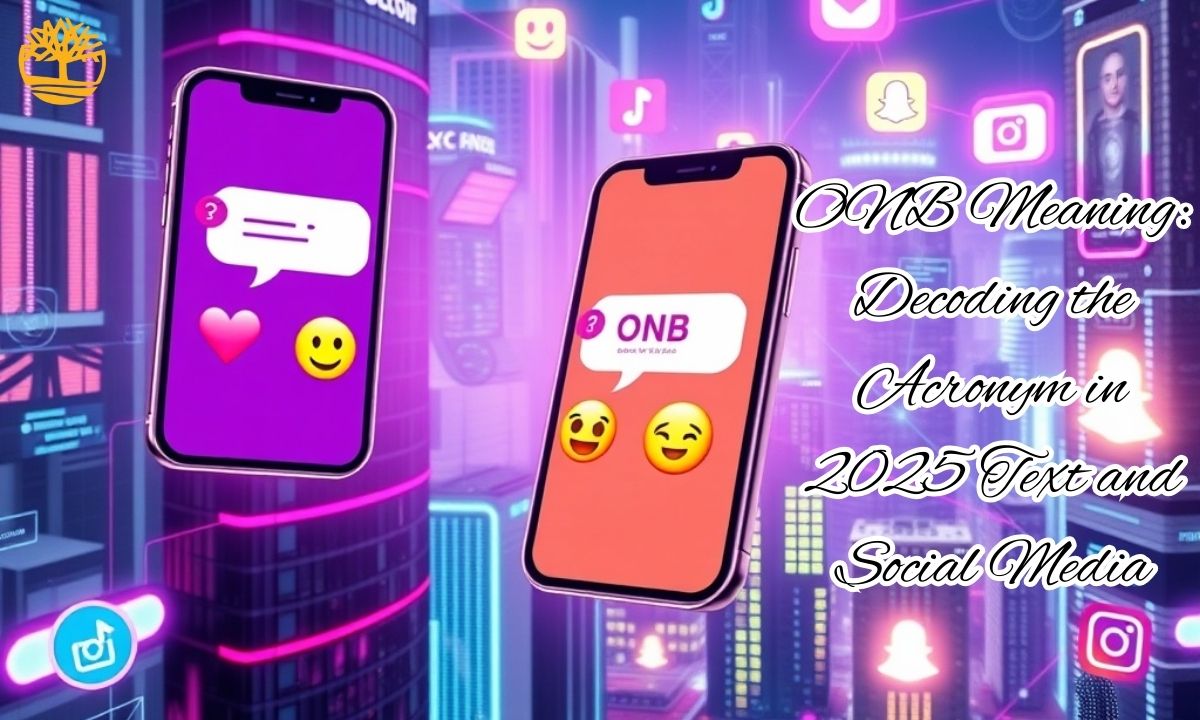Ever seen ONB pop up in a text or social media post and wondered what it really means? In 2025, acronyms shape how we connect, and ONB is no exception. From funny reactions to heartfelt sincerity, this little phrase is carrying big weight online.
Understanding ONB can help you keep up with conversations, avoid confusion, and even boost how relatable your posts feel. Whether it’s TikTok humor, Snapchat slang, or professional talk, decoding ONB reveals how digital language keeps evolving.
What Does ONB Stand For? Key Definitions Explained
In today’s digital world, ONB has multiple meanings depending on the platform and context. From casual slang to professional terms, it adapts quickly. Knowing how to use ONB properly helps you avoid misunderstandings and connect better with friends or colleagues.
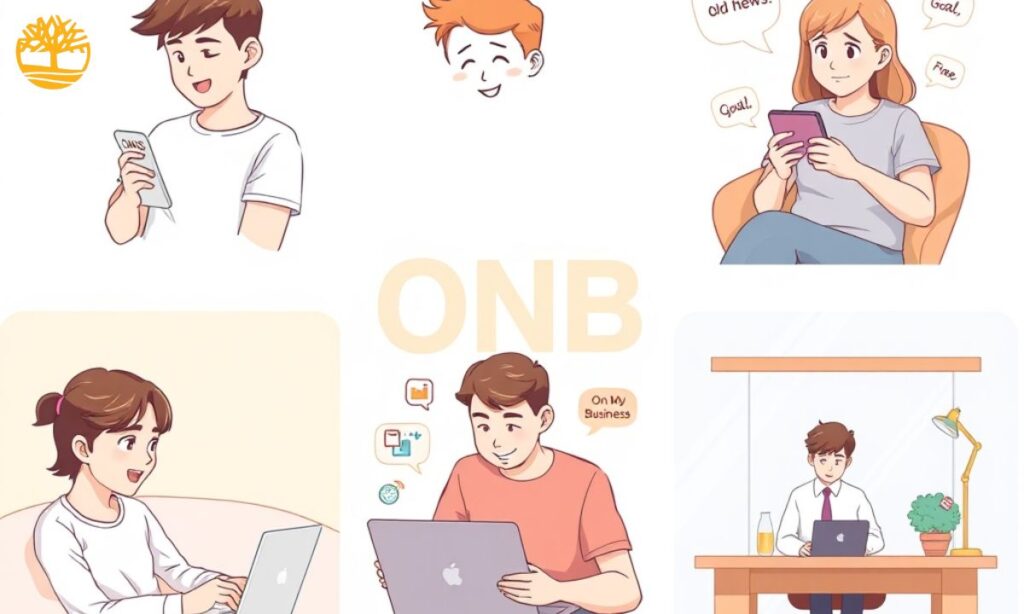
ONB as “On Bro”: Expressing Sincerity
This version of ONB is used to show seriousness or honesty in a conversation. When someone says “ONB,” they are assuring you that their words are genuine. It’s common among younger audiences who want to stress that they’re not joking.
For example:
- Friend 1: “Did you really see him last night?”
- Friend 2: “Yeah, ONB, I’m telling the truth.”
Using ONB in this way creates trust, especially in fast-paced conversations where tone is easy to miss.
ONB as “Outward Nose Breath”: Mild Amusement
In texting culture, ONB often stands for “outward nose breath,” which is that tiny laugh you let out when something is mildly funny. It’s less intense than “LOL” but still shows amusement. This meaning has grown popular on TikTok and other platforms.
For example:
- Friend 1: “I just tripped in front of the teacher.”
- Friend 2: “ONB 😂.”
It’s a quick, low-key way of expressing humor without overreacting. People use it when something makes them smile but not burst out laughing.
ONB as “Old News Bro”: Dismissing Outdated Info
Here, ONB means “Old News Bro”, often used when someone shares information that’s no longer new or relevant. It can be dismissive, but it’s usually playful. This keeps conversations light while pointing out that the update isn’t fresh.
For example:
- Friend 1: “Did you hear about that song release?”
- Friend 2: “ONB, that dropped last week.”
This version works best in casual chats where everyone knows the vibe and no one takes it too seriously.
ONB as “On My Business” or “On Board”: Casual Contexts
In some conversations, ONB means “On My Business” or “On Board.” This use reflects focus, responsibility, or agreement. It’s less common than other meanings but still relevant on certain platforms like Instagram.
For example:
- Friend 1: “Are you working on your goals this week?”
- Friend 2: “Yeah, ONB. Staying focused.”
It can also mean being “on board” with a plan or idea, showing agreement and readiness. This makes it versatile depending on tone and context.
ONB as “Open Net Banking”: Professional Use
Outside of slang, ONB can also stand for “Open Net Banking.” In business or financial contexts, it refers to online banking systems that simplify digital transactions. This meaning is completely professional and not linked to slang.
For example:
- Email: “Please ensure your ONB credentials are updated for secure access.”
Here, context is key—what looks like slang in a text could be an official term in an email. It shows how ONB can move between informal and formal worlds seamlessly.
Platform-Specific Uses of ONB in 2025
The meaning of ONB changes across platforms, shaped by trends and community language. While TikTok users lean toward humor, Snapchat emphasizes sincerity, and Instagram blends both casual and creative expressions. Knowing these differences keeps your communication clear.
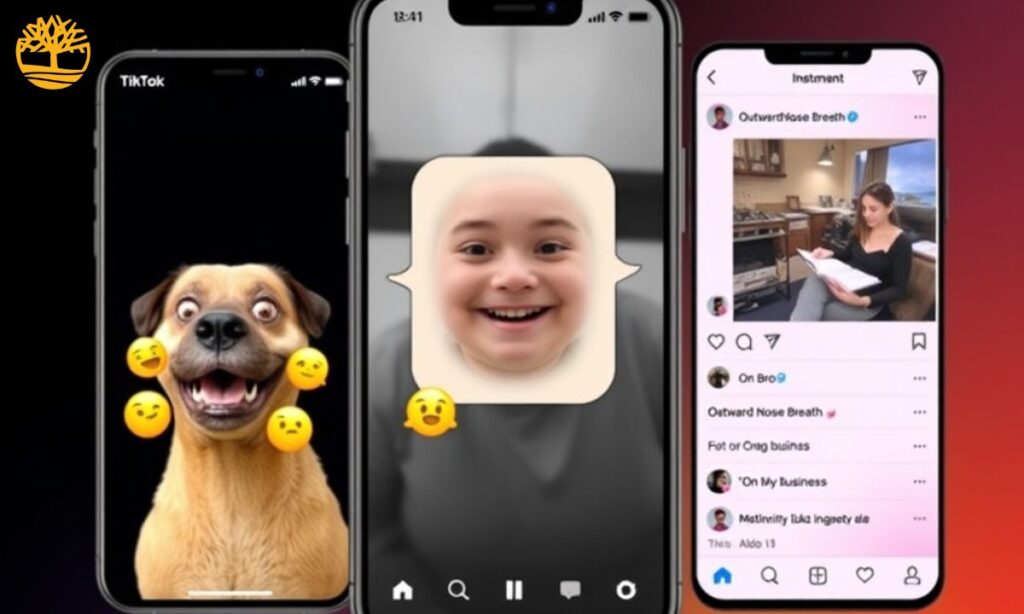
ONB on TikTok: Dominance of “Outward Nose Breath”
On TikTok, ONB mostly means “Outward Nose Breath”, used to show a small laugh or light amusement. It’s part of the culture of quick reactions, often seen in comments under funny clips. This version is now widely recognized among younger users.
For example:
- User 1: Posts a funny pet video.
- User 2: “ONB 😂 this got me.”
TikTok thrives on fast, relatable language, and ONB fits right in as a shorthand for subtle humor without exaggeration.
ONB on Snapchat: Emphasis on “On Bro”
On Snapchat, ONB is usually understood as “On Bro”, a phrase that adds sincerity or truthfulness. Teens and young adults use it to reassure friends that they are serious in what they’re saying. It’s become a marker of trust in casual chats.
For example:
- Snap: “I didn’t skip practice, ONB.”
Snapchat’s personal, direct style makes sincerity important. Adding ONB emphasizes honesty in a way that feels natural and authentic to its users.
ONB on Instagram: A Mix of Meanings
Instagram is more flexible, so ONB carries different interpretations depending on the post or context. It can mean “On Bro” in captions, “Outward Nose Breath” in comments, or even “On My Business” in professional accounts. Context defines its meaning.
For example:
- Caption: “Hustling every day, ONB.”
- Comment: “This reel had me ONB 😂.”
Because Instagram hosts diverse communities—humor pages, lifestyle accounts, and business profiles—ONB adapts, showing its versatility in communication.
When to Use ONB: Contextual Guidelines
The use of ONB depends on context, as each meaning carries a unique tone. It can express honesty, humor, or agreement, but misusing it can cause confusion. Understanding the right setting ensures smoother communication across platforms.
Scenarios for “On Bro” Usage
When ONB is used as “On Bro,” it emphasizes truth or sincerity in casual talks. It’s common among friends who want to highlight that they are serious and not joking. Adding ONB strengthens trust in digital conversations.
For example:
- Friend 1: “Did you really say that?”
- Friend 2: “Yes, ONB I did.”
This version works best in close friendships but should be avoided in formal or professional spaces where it may seem out of place.
Scenarios for “Outward Nose Breath” Usage
ONB as “Outward Nose Breath” signals mild laughter or quiet amusement. It’s lighter than “LOL” and shows a smile without exaggeration. It’s ideal for comments on short videos or memes.
For example:
- Post: Funny animal video
- Comment: “ONB 😂 that got me.”
This meaning fits perfectly in casual online platforms like TikTok or Instagram. It is less suitable for serious exchanges where humor might feel inappropriate.
Scenarios for “Old News Bro” Usage
When ONB means “Old News Bro,” it is used to dismiss outdated or already-known information. It often carries a playful tone but can sound rude if used incorrectly.
For example:
- Friend 1: “Guess what, that show just ended!”
- Friend 2: “ONB, I saw that last week.”
This works in friendly conversations where sarcasm is understood but should not be used in formal or sensitive discussions.
Appropriate Contexts for “On My Business” or “On Board”
In some cases, ONB means “On My Business” or “On Board.” This form highlights responsibility, focus, or agreement. It’s often used in captions or group chats that revolve around goals.
For example:
- Caption: “Focused on growth, ONB.”
- Group Chat: “I’m ONB with the plan.”
This usage blends easily into motivational, casual, and even semi-professional contexts. It reflects maturity while keeping the tone modern and relatable.
When to Avoid ONB: Maintaining Clarity and Professionalism
While ONB is popular online, it’s not always the right choice. Using it in professional emails, academic writing, or formal conversations can confuse your audience. Many people outside social media culture may not know what ONB means, leading to misunderstandings.
In professional spaces, it’s better to use clear, direct language instead of slang. Acronyms like ONB may work in casual group chats, but they risk sounding unprofessional in work-related contexts. Choosing the right words shows respect, maturity, and credibility.
Polite Alternatives to ONB for Clear Communication
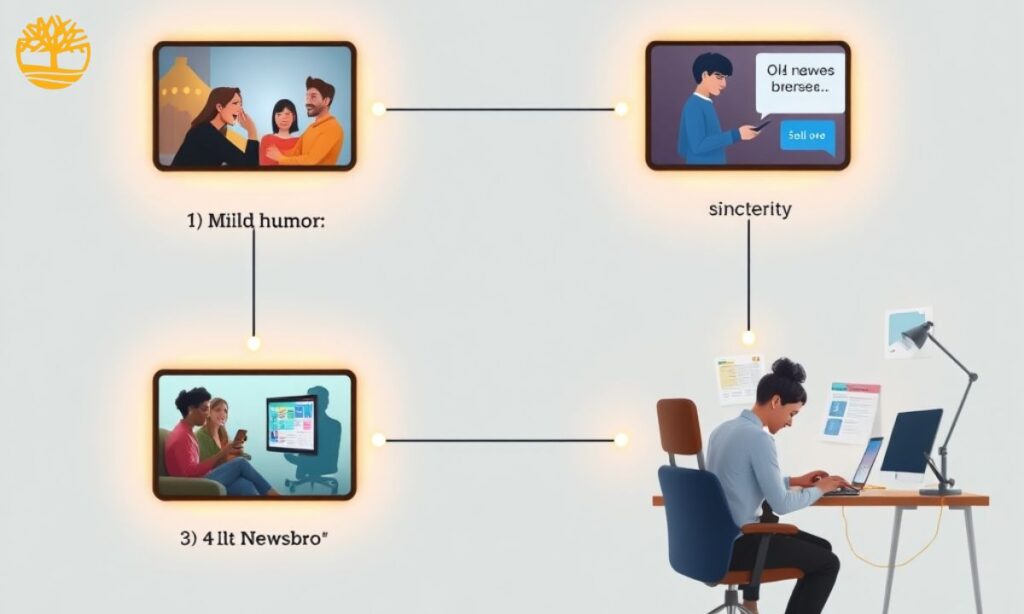
While ONB is widely used, it may not always fit every setting. In professional, academic, or respectful conversations, using polite and clear alternatives helps avoid confusion. These options keep your communication warm, relatable, and still effective.
Alternatives for “On Bro” (Sincerity)
When you want to emphasize honesty, it’s better to use clear expressions that highlight truthfulness. Instead of ONB, you can use respectful phrases that ensure your sincerity is understood.
Examples include:
- “Honestly”
- “I promise”
- “Truly”
- “I mean it”
- “I give you my word”
These alternatives sound mature and trustworthy, making them suitable for both casual and formal conversations.
Alternatives for “Outward Nose Breath” (Mild Amusement)
Instead of ONB for mild laughter, polite phrases or emojis can still capture humor without confusion. These options are easy to understand across all platforms.
Examples include:
- “That made me smile”
- “Haha”
- “That’s funny”
- “😄”
- “You got me laughing”
These expressions keep the tone lighthearted while ensuring your message is clear even to people unfamiliar with slang.
Alternatives for “Old News Bro” (Outdated Info)
Using ONB to dismiss information may sound harsh. Instead, softer alternatives acknowledge the message without hurting feelings.
Examples include:
- “I heard about that already”
- “Yes, I saw that earlier”
- “That’s been going around”
- “I read about it yesterday”
- “I’m already updated on that”
These phrases let you correct or respond without sounding rude, making them more respectful in mixed settings.
Alternatives for “On My Business” or “On Board”
ONB in this sense shows focus or agreement. Polite alternatives can reflect the same meaning while sounding clearer and professional.
Examples include:
- “I’m staying focused”
- “I’m handling my business”
- “I agree”
- “I’m on board with that”
- “Count me in”
These alternatives keep the spirit of commitment and agreement intact but make your message more widely understandable.
Why ONB Matters for Social Media Engagement
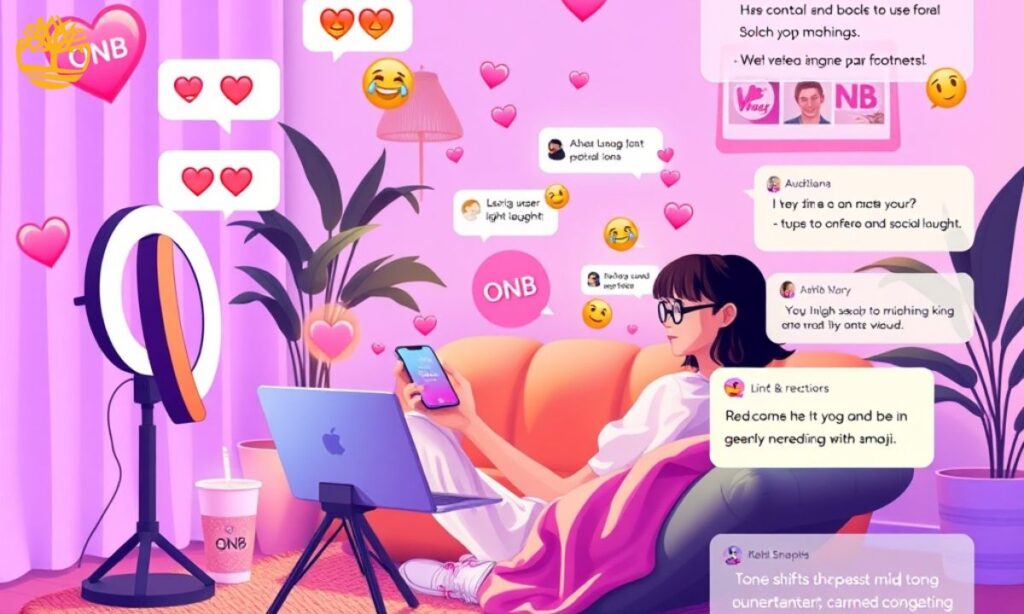
The acronym ONB plays a powerful role in shaping online conversations. It helps people express feelings quickly while building stronger connections. For creators and audiences, understanding ONB is a way to stay relevant and communicate effectively.
Connecting with Younger Audiences
Younger users often create and spread slang that becomes part of digital culture. ONB is one such phrase that resonates with them and feels authentic. Using it properly shows awareness of trends and helps build trust among this group.
This connection is about more than just words; it reflects a sense of belonging. Younger audiences respond to content that mirrors their communication style. When used thoughtfully, ONB can act as a bridge between generations in online spaces.
Creating Authentic and Relatable Content
Audiences online are drawn to content that feels genuine and natural. Using ONB in the right context reflects a tone that is conversational and relatable. It prevents posts from sounding forced or out of touch with digital culture.
Authenticity builds loyalty and engagement, making people feel comfortable interacting. ONB becomes part of a strategy to keep messaging light yet impactful. It reflects the importance of adapting to the rhythm of online language.
Interpreting Audience Reactions Accurately
Social media language can often be misunderstood without context. ONB carries multiple meanings, and interpreting it correctly helps avoid confusion. Understanding the tone behind it ensures smoother and more accurate communication.
This awareness strengthens relationships by showing respect for how people express themselves. It allows creators, brands, and individuals to engage more effectively. By decoding ONB correctly, one can respond in ways that feel timely and relevant.
Key Takeaways for Using ONB Effectively in 2025
- Understand the context before using ONB. Since ONB can mean On Bro, Outward Nose Breath, Old News Bro, On My Business, On Board, or even Open Net Banking, the key is to pay attention to the setting. A casual chat on Snapchat isn’t the same as a professional email, and using the wrong meaning can cause confusion or even harm credibility.
- Use ONB to strengthen connection, not to replace clarity. While acronyms make communication faster, always ensure that the person you’re talking to actually knows the meaning. If not, the shorthand becomes a barrier instead of a bridge. In digital conversations, clarity always outweighs cleverness.
- Match ONB with the right audience. Younger audiences often enjoy and understand slang like ONB because it reflects their digital culture. However, older or more formal audiences may not relate to it at all. Knowing your audience’s comfort level with internet slang ensures that ONB adds value rather than causing misunderstandings.
- Balance informality with professionalism. In casual spaces such as TikTok, Snapchat, or Instagram, ONB adds humor and relatability. But in emails, LinkedIn posts, or workplace chats, stick to professional alternatives. This balance ensures you appear both approachable and respectful of context.
- Stay updated as meanings evolve. Internet slang changes rapidly, and ONB may develop new meanings over time. What’s popular on TikTok today might shift in a year. Keeping an eye on how ONB is trending ensures your usage feels current and relevant rather than outdated.
- Avoid overusing ONB in conversations. If every sentence contains ONB, it can lose its impact and feel forced. Acronyms work best when sprinkled naturally into discussions. Use it where it truly fits the emotion or tone, not just as filler.
- Use ONB strategically to engage, not confuse. The main purpose of acronyms like ONB is to capture attention and express tone efficiently. When used sparingly and correctly, they help you connect with others in meaningful ways. But when forced or misplaced, they can weaken your message.

Muhammad Shoaib is a seasoned content creator with 10 years of experience specializing in Meaning and Caption blogs. He is the driving force behind ExactWordMeaning.com, where he shares insightful, clear, and engaging explanations of words, phrases, and captions.
